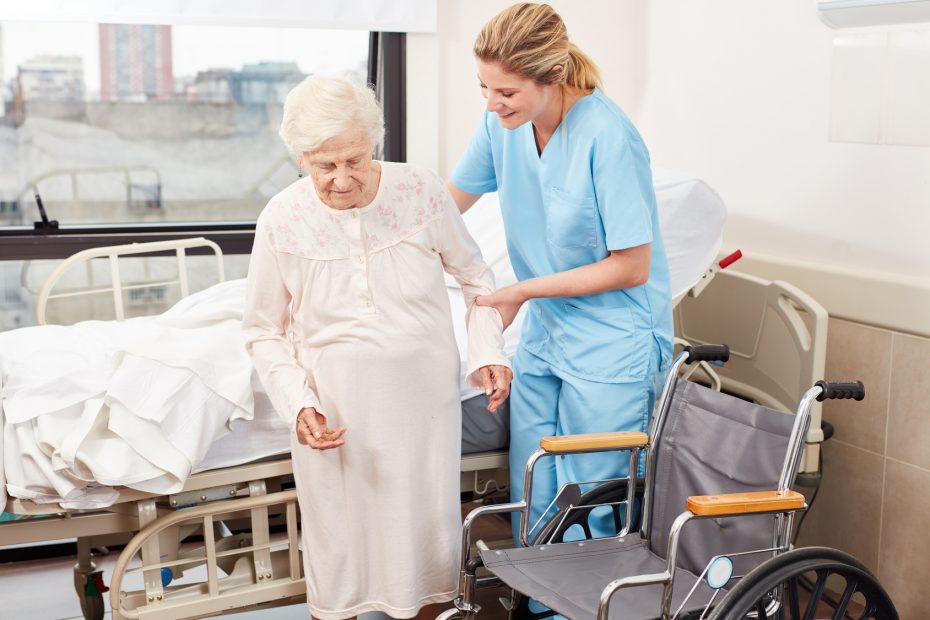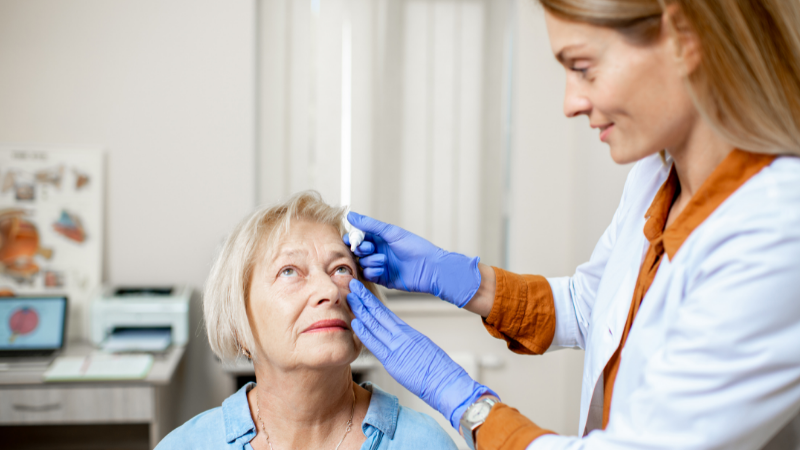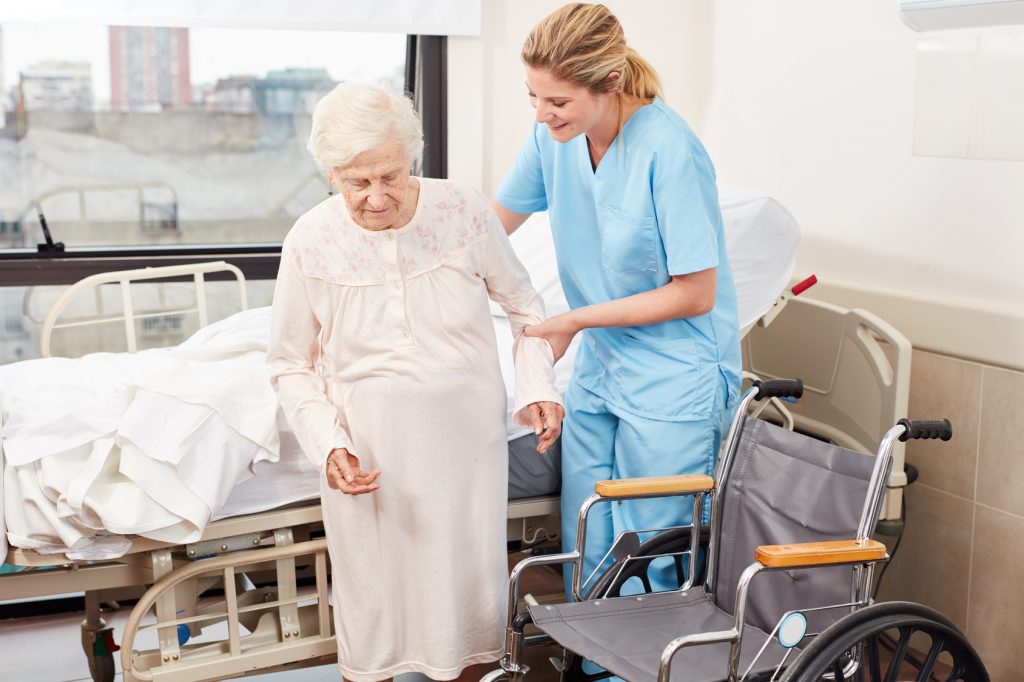
The post-surgical period is stressful for elderly patients. The physical and emotional tolls are evident in the senior as well as the family. Extra support will be necessary to facilitate a complete recovery. While a skilled nurse is recommended in certain cases, non-medical home care is practical for many.
What are common surgeries?
Older people are more likely to need surgery as a result of the aging process. In fact, seniors make up 20 percent of surgical patients. Six common surgeries are performed on elderly individuals, and these surgeries are largely necessitated by increasing age.
Seniors commonly require cancer surgeries to remove or stop tumors from spreading in the prostate, colon, breast, or other organs. Cataract surgery is commonly needed in older people, as they experience clouding of the eye lens more often than younger people.
Another common surgery that is an outcome of aging is joint replacement surgery. The pain and inflammation associated with arthritis can be alleviated with surgery. Gallbladder surgery and ulcer surgeries are common, too. Severe ulcers require surgery to remove part of the stomach.
Once the surgery is performed, the aging patient will need continued post-operative care. The elderly individual’s health history and the type of surgery determine the level of post-operative care needed. Most post-operative care plans involve pain management and wound care.
Some seniors will require same-day surgery and be discharged from the hospital immediately after the procedure. In order to be discharged, the patient must demonstrate that he or she can breathe normally, eat, drink and urinate. A caregiver should be available to drive the senior home.
Inpatient surgery, on the other hand, requires that the senior remain in the hospital overnight or for several days. The elderly individual may have an intravenous (IV) catheter in the arm, and, depending on the surgery, a heartbeat monitor, breathing apparatus, and tube in the mouth or nose.
Upon leaving the hospital after outpatient or inpatient surgery, the senior will require post-operative care at home. It is important that a caregiver be present prior to the senior’s discharge so that she may receive and implement care instructions given by the medical team.
Have a loved one who will soon go under surgery? Here is a List of Items to Have at Home When Recovering from Surgery
When is skilled nursing care appropriate?
Once at home, the post-operative care can resume. As mentioned, the type of surgery performed determines the type of postsurgical care needed. Skilled care provided by a licensed nurse may be necessary if the senior requires wound care and monitoring for post-surgical complications.
Private registered nurses give the elderly patient personal attention and prevent post-surgical infections. Pain management is a large part of skilled nursing care. By closely monitoring the surgical site for post-operative complications, a licensed nurse can reduce the risk of hospital readmission.
Learn about What are the Main Causes for Hospital Readmissions
When is non-medical home care appropriate?
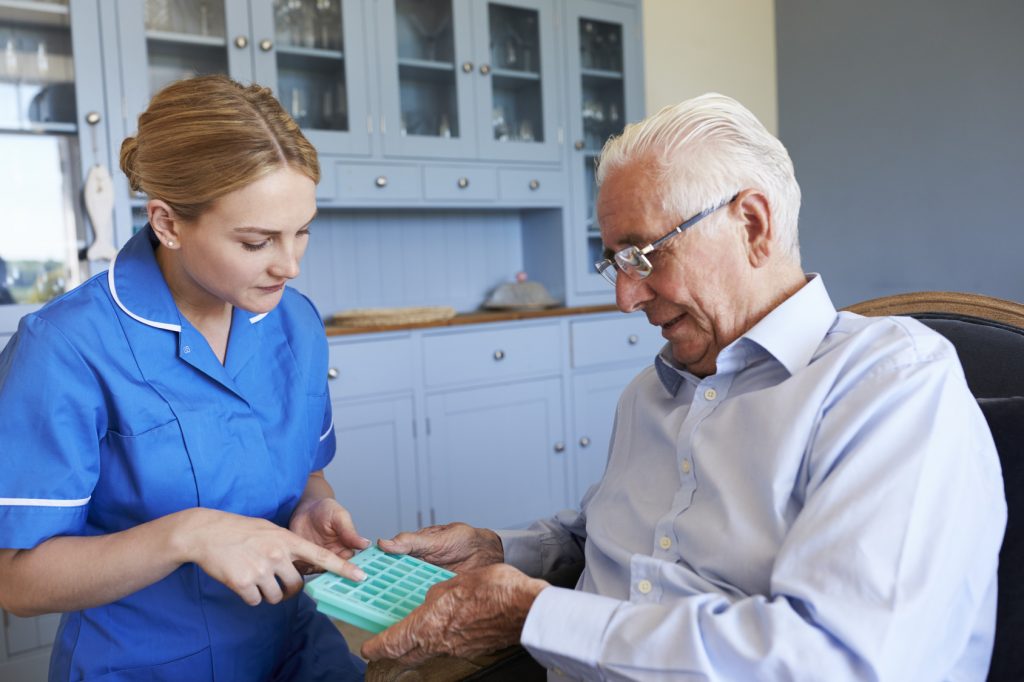
However, not all post-operative care requires the services of a skilled nurse. Non-medical home care is appropriate for many seniors who are recovering from surgery or a hospital stay. When in-home support is provided, these elderly post-operative patients are able to recover faster.
Non-medical home care is an ideal short-term solution for seniors recovering at home from a surgical procedure. Professional caregivers provide assistance with all the tasks of daily living. Elderly patients do not add undue stress to their bodies when a caregiver handles homemaking tasks.
The senior’s doctor may instruct the elderly patient to rest. A professional caregiver provides the non-medical support to allow the senior to recuperate fully. While the patient is on bed rest, the caregiver prepares the senior’s meals, tidies up the home and assists with personal care tasks.
A professional caregiver is also trained to assist seniors with mobility issues. A caregiver will shift the senior on bedrest so that sores do not develop. When the senior requires help getting into or out of bed, the caregiver will be available to provide much-needed assistance.
Once the senior’s physician gives the go-ahead to become active again, a caregiver will provide physical support and stability. Physical activity is important to recovery. A professional caregiver will ensure the senior remains physically safe as he or she gradually returns to a normal routine.
Medications are commonly prescribed to post-surgical patients. While a non-medical caregiver does not have the license to administer medications, the professional will provide timely medication reminders. A caregiver will ensure the senior takes the right doses at the recommended intervals.
Follow-up visits to doctor’s offices are an integral part of post-operative care and recovery. Professional caregivers provide elderly care recipients with transportation to the doctor’s office or physical therapy sessions. If exercise is a part of the recovery plan, caregivers transport seniors to exercise classes.
Compassionate post-operative care is critical to a full recovery. While family members may be willing to provide assistance at home, they may not always have the time or knowledge to provide fulltime post-operative care. In these instances, home care from Assisting Hands Home Care will be an ideal solution.
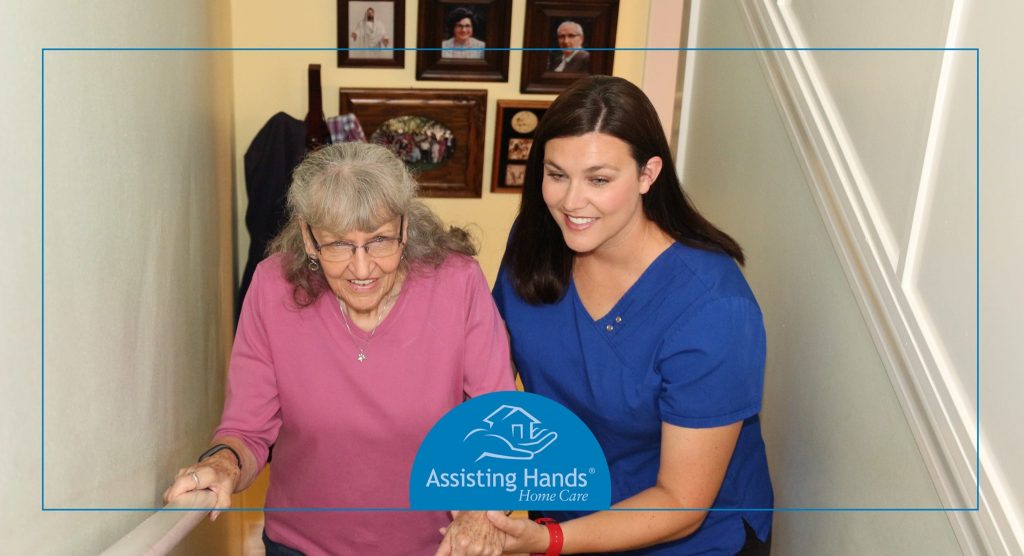
Our caregivers will be there to listen carefully to the doctor’s care instructions. We follow the physician’s care instructions to help the senior regain physical strength. An added benefit of home care is that the senior is able to recover in the comfort of home rather than a nursing facility.
Assisting Hands Home Care professionals are trained to ask the senior’s medical providers the right questions. We follow up with the patient’s nurses, doctors, or surgical coordinators in order to develop a customized care plan to support the senior care recipient.
We aim for the smoothest transition possible from the hospital to the senior’s home. Once at home, our caregivers prepare meals in accordance with the senior’s dietary restrictions, give medication reminders to ensure medication compliance and provide transportation to doctor’s appointments.
Families with seniors living in Naperville, Glen Ellyn, Lisle, Warrenville, Westmont, Wheaton, Woodridge, Illinois, are encouraged to consult Assisting Hands Home Care when anticipating surgery. We provide compassionate post-operative care, which may be extended once the patient fully recovers. Seniors benefit immeasurably from our quality non-medical home care.






